Middle Tennessee State University’s MT Engage recently hosted a workshop attended by 45 faculty and staff featuring history professor Peter Felten, co-author of “Relationship-Rich Education: How Human Connections Drive Success in College.”

In the book — which has become the most popular selections among Learning, Teaching and Innovative Technologies Center faculty and staff book groups to date — Felten and co-author Leo M. Lambert suggest relationships are central to undergraduate retention and success.
“He talks a lot about the importance of our students having meaningful interactions, not just with professors, but also with other students,” explained Julie Myatt, a professor of English and director of MT Engage, a campuswide curriculum enhancement program which supports faculty in adopting high-impact practices including collaborative projects, community-engaged learning, undergraduate research and study abroad.
Felten’s research on the importance of relationship in students’ educational experiences directly relates to the Quest 2025 goal of “creating an inclusive culture that fosters all students’ capacities to be active learning partners as students, alumni and engaged citizens.” Felten noted that the more relational MTSU is as a campus, the more students will feel connected and empowered for success.
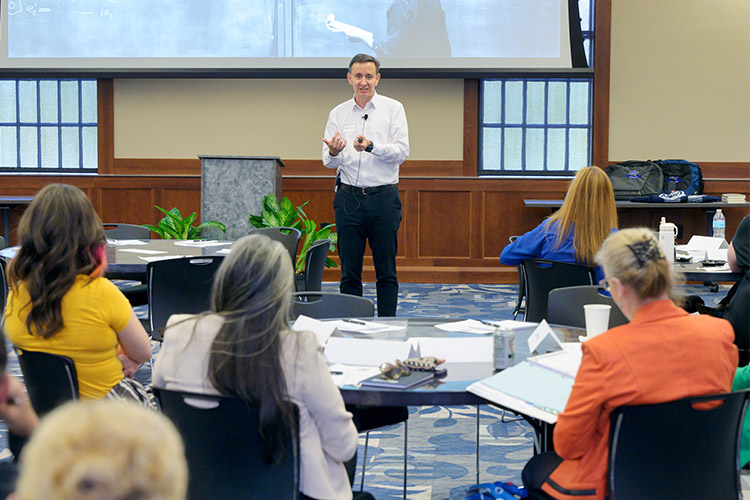
“If you’re looking at what supports students in learning, what supports their sense of well-being and sense of belonging, what supports their retention and graduation rate, among the most important factors is the quality of relationships they form,” said Felten, the assistant provost for teaching and learning at Elon University in Elon, North Carolina, where he also serves as director of the Center for Engaged Learning.
Felten’s newest book, “Connections are Everything: A College Student’s Guide to Relationship-Rich Education,” co-authored with Lambert, Isis Artze-Vega and Oscar R. Miranda Tapia, presents this research to a student audience. The book is free to download for college students through Elon University’s Center for Engaged Learning website.
The recent workshop is not the first time Felten has presented at MTSU. Faculty and staff have been reading and discussing his book since he visited campus in spring 2022. His work is so relevant to current initiatives at MTSU, Myatt said they chose to bring him back again.
“There’s a lot of enthusiasm around this topic, and faculty and staff are invested in it,” Myatt said. “We want our students to have the most positive learning experiences possible.
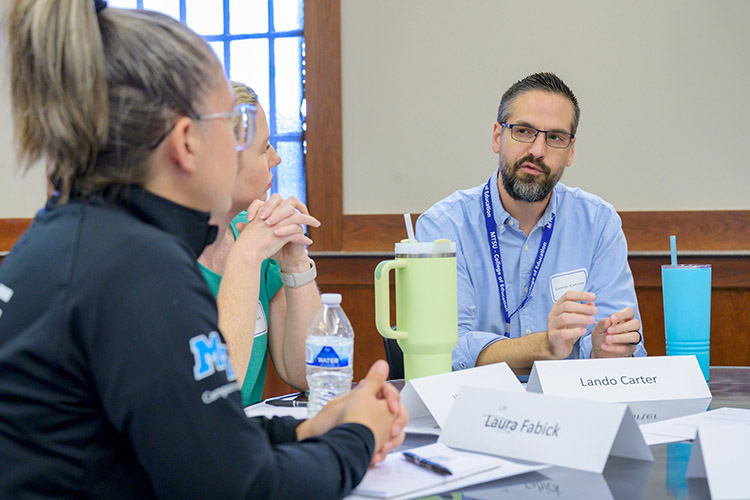
“This just goes to show MTSU is committed to creating a relationship-rich environment.”
Lando Carter, associate professor in the College of Education, said he’s had success after incorporating Felten’s principles and strategies.
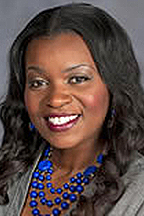
“Relationships help you become a better learner, become a better major and become a successful student and beyond,” said Carter, interim director of teaching excellence at MTSU’s LT&ITC. “My takeaway is … going it alone is not going to be the right choice. The easier, better, richer and more fun and effective way is teaming up with each other. That’s your teachers, your peers and your advisors.”
Jonell Hinsey, interim associate vice provost for student success and professor in University Studies, signed up again to hear Felten’s program because “incorporating Dr. Felten’s methods in our classrooms has worked.
“I know relationship is vital to graduation and retention. Therefore I wanted to be here to continue to build my knowledge on how I can continue to foster our relationships between students, faculty and staff,” Hinsey said.
Others interested in cultivating relationship-rich experiences at MTSU are invited to contact Myatt at Julie.Myatt@mtsu.edu or Carter at Lando.Carter@mtsu.edu for information about future efforts.
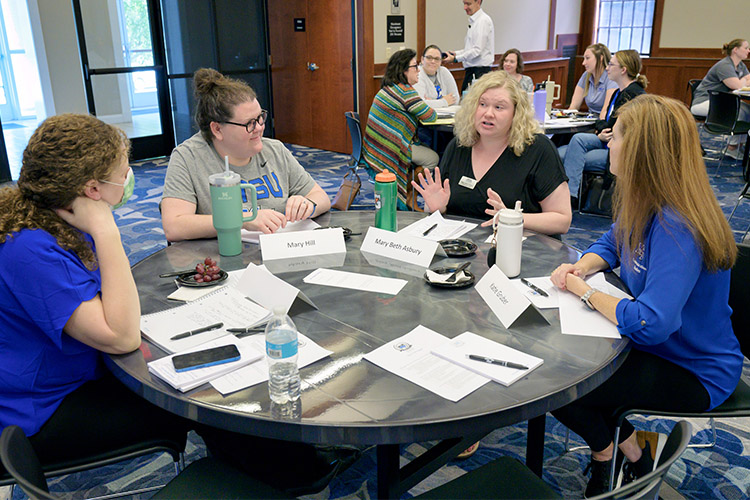
— Nancy DeGennaro (Nancy.DeGennaro@mtsu.edu)

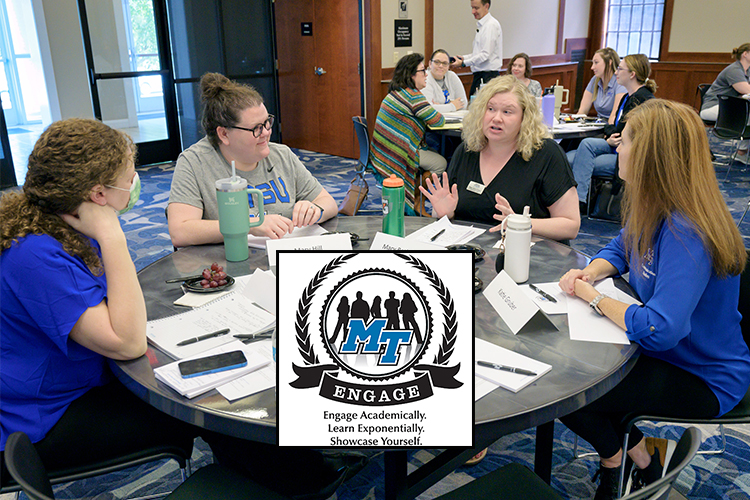
COMMENTS ARE OFF THIS POST